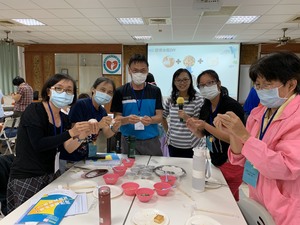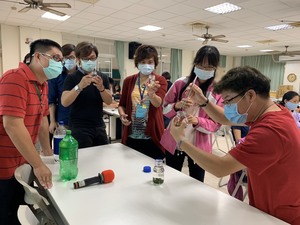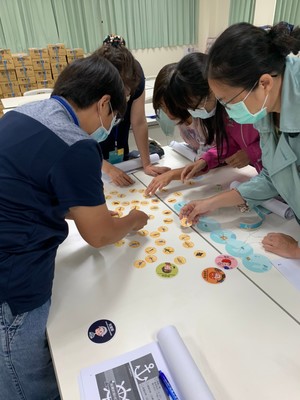2020 lecturer training and study tours for marine career exploration teaching and development (Southern Taiwan session)



The Taiwan Marine Education Center held its 2020 workshop on marine career exploration and lecturer training on August 4th. In all, 27 teachers from frontline instructional venues participated in the workshop.
At the workshop, the instructional package (i.e., “The Fishery Industry”) was revealed. The research and development team for the instructional package comprised teachers in various fields, including Associate Professor Tsai Wen-Pei from the Department of Fisheries Production and Management at National Kaohsiung University of Science and Technology (NKUST), Mr. Jianzhi Chen from the Innovation and Entrepreneurship Education Center at NKUST, and Director Ye Meijun of Kaohsiung Municipal Guochang Junior High School. The package helps students acquire fishery-related knowledge such as longline fishing and bycatching. In addition, we collaborated with the Office of Marine Science and Technology at NKUST, and Professor Tsai Meiling from the Department of Seafood Science gave an introduction to how the collagen of fish scales is used to make ice cream, tofu, and dumplings and helped the teachers who participated in the workshop understand what opportunities can be offered by the Department of Seafood Science regarding employment and industry–university cooperation. Dr. Ding De-Sing of the Department of Aquaculture then demonstrated how to fabricate a bottle to observe marimo moss balls and provided an introduction to aquaculture in Taiwan to help participants understand the breadth of aquaculture. In addition to edible fish, ornamental fish, corals, and algae provide options for aquaculture-related career development.
The workshop incorporated themes in three domains (i.e., fishery, food science, and aquaculture), presenting diverse content to the participants. The instructional package (i.e., “The Fishery Industry”) provided teaching tools appreciated by numerous participants. At the workshop, participants communicated with one another regarding teaching and the teaching tools. Moreover, hands-on lessons on the topics of food science and aquaculture were vivid and interesting. The two lecturers also shared their knowledge and experience of the industry, with participants actively asking questions. Understanding what personality traits and knowledge are essential to becoming industrial professionals helped participants learn how to introduce the marine industry to their students and how to assist students in choosing professions according to their interests and specialties.

